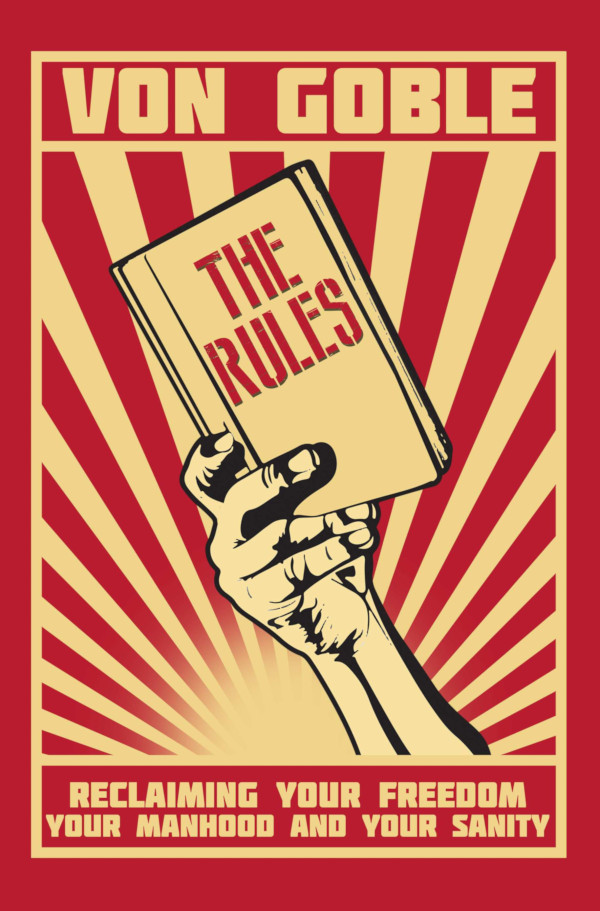(Part 1 of 6)
A band of light torques around her finger and then it drops. The rest flows down from her head and out in all directions—a messy, not-quite halo, hanging far too low, obscuring her otherworldly face.
Elmer’s gotten used to this—everything looking strange—but the black teeth still get to him. Eventually, he could adjust to that as well, if only the distortions were to remain consistent. But they don’t. The colors are inverted—a film negative. Then they aren’t. Everything is right-side up. Then it’s upside down. Elmer would have the implant taken out if he could, but there’s no one around to do it, not since Doc died. Even if there were, who would dare? The nerves and nano-wires had become so tightly enmeshed that trying to separate them without the benefit of a 3D microscope would leave Elmer blind, if not dead.
But if the 3D microscopes worked, his implant probably would as well: They were all roasted at the same time.
The man starts speaking. Elmer shifts his gaze. It’s impossible to guess the man’s age, at least through the inversion. Elmer notices the accent.
“We don’t have any money. We know we owe you . . . ”
Vietnamese? Elmer can’t tell. He scowls, but he’s not certain of how obvious it is.
“I have no time for this,” cough, “pay your bills.”
“We don’t have any money.”
“Yeah, I heard you the first time.” Elmer looks around, leans back in the disintegrating recliner and pats his field jacket. Where in Satan’s name did I put that cigar? And that is his primary concern. He doesn’t need to listen to the spiel. He’s heard it all before.
“Certainly, we can offer you something.” The man sounds vaguely solicitous. Elmer glances past him, at the girl. She’s playing with her hair—self-soothing, Elmer guesses—shifting uncomfortably in her chair. Yep, that’s about right. When the times get tough, the people get pimping.
“And what would I do with her?”
The man, probably the father, looks perplexed. But it’s a valid question. The obvious thing to do with a girl isn’t all that obvious once you’ve hit your seventies, and that mile marker shrunk away to nothing in Elmer’s rear-view mirror long ago. An invisible bulb illuminates over the man’s head. It’d be inverted too, if only Elmer could see it.
“She can cook!”
“Everybody says that,” snort, “Everybody lies!”
And they did. Payment in people, usually girls and women, had gotten surprisingly common over the past year. Your son could join a militia (pronounced: gang). Or you could send him out in search of the City of Light—not the one with outdoor cafes and streets covered in dog shit. That city was ruined, all but empty, and completely dark, with the last message heard from there being a suicide note, broadcast to no one in particular—but some mythical place; a city always just beyond the horizon; an island nation-state; or even a converted oil tanker, retrofitted to allow billionaires to ride out the collapse of the modern world in comfort, where the grid worked and where Faraday cages, as far as the eye could see, had protected all the valuable technology.
It’s all nonsense. There is no city. The militias are useless messes. Nobody prepared, which is a pity. They could have. To the extent that anyone can be certain of anything, Elmer knows that the City and the saving power of the militias are pipe dreams. You were sending your son to his death. Oh well. And nobody knows how to fix anything. That makes life worse.
Well, almost nobody knows how to fix anything. Only a few of the most crotchety, caustic, and usually half-blind near-corpses know how to breathe life back into the machines. And those who do, find themselves in high demand. Hence:
“Do you know what happened to the last girl?” Elmer smiles sinisterly. The man shrugs. “Ate her!”
This is a lie. Elmer’s garden is doing better than he had hoped it would, and since he started canning again, there’s no shortage of vegetables, even in the dead of winter. The corn crop—nearly ready for harvest—is likely to be fair to middling, but the potatoes are coming along nicely. The idea of dining on a booze-fed land whale is nauseating, and what would be the point? The pond is well stocked, and the bass and bluegill almost certainly have fewer heavy metals in them than does human flesh. The truth—the truth is that the last woman ran away when she realized that the only time anyone got hot and sweaty on Elmer’s farm was when digging a drainage ditch. And many ditches need digging. Elmer wants work, not affection, and he doesn’t trust anyone who offers him the latter.
He always gets a kick out of the cannibalism shtick. He started the horror-house myth as a way of discouraging people from dumping strays on him (of either the two- or four-legged varieties). It seems to be effective: An amazing number of people appear to believe him.
They shouldn’t.
The man is resigned. He’s given up. The men who come begging usually do. They know a stubborn old jackass when they’ve met one.
Someone clears her throat, far too loudly, and up stands a woman, probably middle aged (but again, judging age from a negative image isn’t easy for Elmer). She’s short, sturdy, and dark enough to look as though she just plodded out of a rice paddy.
“But she really can cook. I swear! I taught her myself!” There’s obvious pride in the last sentence, enough to intrigue Elmer.
“Oh really?” He lets the words fade away and die. “What?”
The woman turns around and barks something incomprehensible at the girl in the corner, who’s still nervously manipulating her hair and staring at the floor, in tones so harsh that Elmer nearly snaps to attention. He has to resist answering with a Sir, yes, sir!
The girl opens her overstuffed backpack, produces a collapsible fishing rod and toy-sized tackle box, and scurries out the door. This is new.
“What’s she doing?” Elmer nods towards the door, not taking his eyes off the woman. She’s no longer in chromatic reverse, but she’s upside down. And such is why I stay off the road—It doesn’t matter that Elmer has the only truck for miles around that works. He looks her over, bottom to top. The woman isn’t old—45 at worst. And her clothing is well-mended, which makes her stand out all the more in a world dressed in rags. Maybe she did teach the girl something.
“You watch! She’ll catch your dinner, and she’ll fry it too. All you have to do is take it easy, old man!” She snarls. Elmer snarls back.
“And what do you want in exchange for this oh-so-practical child of yours, honey?” There’s no point in talking to the man. Elmer can see who runs the show.
“Forgive our debts! All of them!”
Elmer nods, but has a sneaking suspicion she’s not . . .
“And free fish! You let the girl catch enough fish for us too.”
Elmer and the woman eyeball each other, waiting for the other to blink. Elmer spots his cigar on the edge of the old, gray, government-surplus desk. That’s where I left it! He picks the cigar up, nonchalantly, before swirling it around his mouth. Elmer begins to pat himself down for a second time. Where did I put that . . .
Snap! Snap!
A spark and then a flame appear before Elmer in quick succession. He leans forward and lights his cigar. The woman smiles down on him before clicking closed the lid, and dropping a Venetian slimline Zippo back into her pocket. Elmer is impressed. The woman—the mother, presumably—was halfway across the room seconds ago—and she must have made the leap while Elmer was looking down, and silently. And not that many women could snap start a lighter anyway. Hmm. He takes a contemplative drag.
“We’ll see how dinner goes.” Elmer does his best to sound impassive.
The woman’s smile becomes a faint smirk.
She knows she’s already won.
***
I wish Mom had let me pack the other tent. This one is too small, and I can never get the folds quite right. The angles are off, never aligned, and the fabric makes a harsh noise when I brush my fingers across it. But the other tent is Little Brother’s, and she won’t let me move anything of his. I don’t blame her. A place for every thing, and every thing in its place. But Mom is not that careful about anything else. She’s moved other things since the big green waves rolled across the sky and made all the machines go dark.
I don’t like it—everything being moved. The house is messy, and I’ve lost track of all the little objects. The numbers keep getting smaller. Mom sells things. I don’t know why. We didn’t have too many, and I could keep count of what we did.
The lights were pretty. You could even see them during the day. The bright waves, mainly green but flecked with a little red, flowed from north to south, and fainter ones moved up from south to north. They met in the middle, lapping over each other, but they didn’t make any noise. They didn’t crash into each other, not like water. I liked that.
Then sparks flew off the electric lines, and things started burning. There wasn’t any water from the pipes and faucets. I didn’t like that.
Mom wants me to cook. She says it’s the only thing I can do well right now. That and music. I remember 183 recipes. I have all the spices I need, but I don’t know what I’ll do when I run out of them. The man doesn’t say anything about the food. It must be okay. Mom tells me I’ll need to learn more things eventually.
I wish Mom had let me pack the other tent. I don’t like the way this one smells. At least everything in here is quiet.
Return next week for Part II, or buy Foresight (and Other Stories) today.


The Rules
The Rules is a philosophy and self-inquiry text designed to help readers develop mental discipline and set life goals. It does this by way of guided readings and open-ended questions that facilitate the rational and systematic application of each Rule.
Put another way: The Rules is a book designed to help men survive and thrive in the West.
Foresight (And Other Stories)
Four tales across time and distance. Always satirical and frequently dark, this collection considers the breadth of isolation and the depth of connection.
Brant von Goble is a writer, editor, publisher, researcher, teacher, musician, juggler, and amateur radio operator.
He is the author of several books and articles of both the academic and non-academic variety. He owns and operates the book publishing company Loosey Goosey Press.









